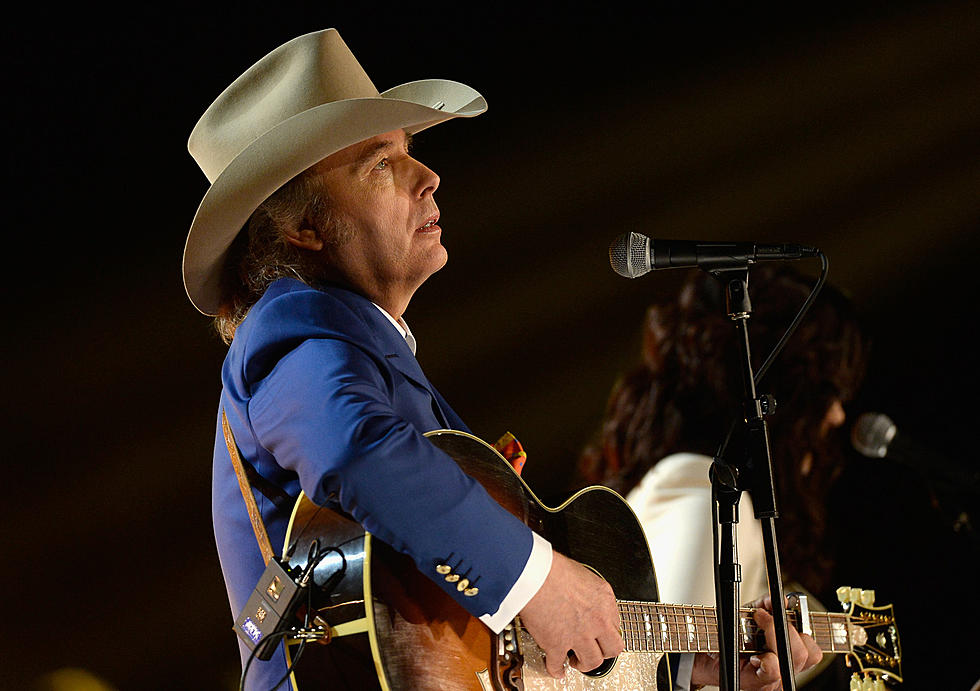
A tender, steel-bright reckoning: the moment you realize heartbreak can be a teacher—and grace sometimes sounds like a Telecaster.
A mid-tempo confession that keeps its boots on the floor while your heart finally tells the truth.
Let’s set the anchors first. “You’re the One” by Dwight Yoakam was released in February 1991 as the second single from his fourth studio album, If There Was a Way. Written by Yoakam himself and produced by Pete Anderson for Reprise Records, it became the album’s biggest U.S. hit, reaching No. 5 on Billboard’s Hot Country Songs and No. 4 on Canada’s RPM Country Tracks. The single runs 3:59, with “If There Was a Way” as its B-side, and its music video was directed by Jim Gable. These are the ledger facts, and they’re firm.
A quick frame around the album: If There Was a Way arrived on October 30, 1990, the sound of Yoakam and Anderson deepening their modern Bakersfield grit—bright guitars, roomy drums, and vocals carried with an unhurried ache. Five cuts from the LP would go Top 40 across 1991–92; among them, “You’re the One” stood tallest in the U.S., proof that country radio heard both the craftsmanship and the vulnerability in Yoakam’s pen.
Behind the chart line is a small, telling backstory. Yoakam first sketched “You’re the One” a decade earlier, cutting a 1981 demo long before the world knew his name. He tucked that seed away until the right record and band could carry it; the demo later surfaced on the 2002 box set Reprise Please, Baby: The Warner Bros. Years and on the 2006 reissue of Guitars, Cadillacs, Etc., Etc. Hearing the early take beside the 1991 single is like holding two photographs up to the light—the same face, older now, wiser about what love can cost.
The lyric, spare and unsentimental, is classic Yoakam: a man speaking to the lover who once broke him, now watching her stumble through the very hurt she left behind. It isn’t vindictive; there’s no gloating in his tone. Instead, the song sits in a more complicated room—where empathy brushes up against memory, and where the truth comes out in plain English. “Now you know,” the narrator implies, “what it felt like when the shoe was on my foot.” For listeners who’ve lived a few decades with love’s stubborn lessons, that plainness can hit harder than poetry. It recognizes the moment when sorrow turns from a wound into understanding.
Musically, Pete Anderson frames Yoakam’s voice with signature clarity: wiry lead guitar lines that glow without crowding, a backbeat that doesn’t fuss, steel that sighs rather than sobs. This is the hillbilly modernism Yoakam carried into the ’90s—Bakersfield angles polished just enough for FM air, but never dulled. The performance breathes; the band leaves room for the singer to lean into a consonant or hold a vowel a heartbeat longer, as if he’s remembering the face across the table in real time.
Meaning? At its core, “You’re the One” turns heartache into perspective. It says that love’s scales eventually balance—not by fate, but by the simple arithmetic of being human. We hurt; we learn; we pass through the seasons and see ourselves in somebody else’s weather. Older readers often recognize that arc immediately. Once you’ve had a few miles to think about the past, a song like this feels less like payback and more like release—the gentle unclenching that allows you to wish an old flame well without forgetting what happened.
The song didn’t stop traveling when its single run ended. A quarter-century later, bluegrass outfit Flatt Lonesome recut “You’re the One,” carrying its bones into three-part harmony and high-lonesome lilt. In 2016, that version won IBMA Song of the Year, with Yoakam credited as writer—an unlikely, lovely second life for a country hit whose heart always leaned acoustic. Legacy, in other words, confirmed.
If you’re placing it in your own scrapbook, mark a few images. Maybe it’s the video glow on a winter evening in 1991; maybe it’s the feel of a car seat on your back while the radio carried those chiming guitars down a dark stretch of county road. For many, Yoakam was the bridge between the honky-tonk they grew up with and the newer country their kids could hear as their own. “You’re the One” sits right there on that bridge—traditional enough to satisfy the ear that loves Buck and Merle, modern enough to live beside whatever else the dial might throw at you.
A few final pins, for the record keepers: Artist: Dwight Yoakam. Song: “You’re the One.” Album: If There Was a Way (Reprise, Oct. 30, 1990). Writer: Dwight Yoakam. Producer: Pete Anderson. Released as single: February 1991. Peaks: No. 5 (U.S. Hot Country), No. 4 (Canada RPM). Video: directed by Jim Gable. 1981 demo later issued on Reprise Please, Baby and the 2006 reissue of Guitars, Cadillacs, Etc., Etc.. All of which is to say: the song’s facts are straight—and its feeling, if anything, has grown truer with time.
So cue “You’re the One” again, and notice what changes. Not the notes—they were right from the start—but the way your own years hum along with them, filling the spaces between the words. That’s the quiet miracle here: a three-minute country single that teaches patience without preaching, and leaves you lighter than it found you.